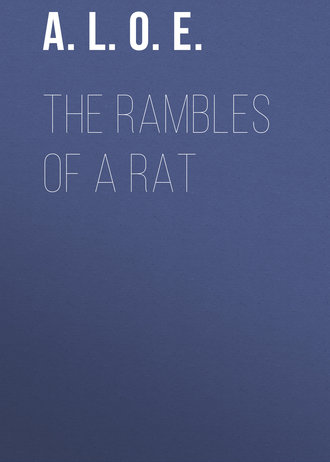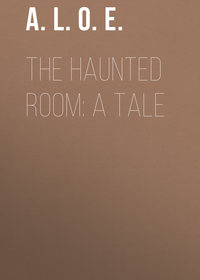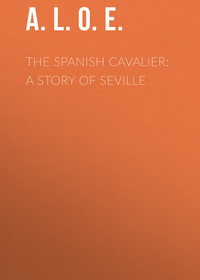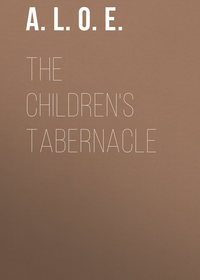 полная версия
полная версияThe Rambles of a Rat
There was but one subject on which Whiskerandos and I were ever in danger of quarrelling. I had made up my mind – and Furry, who was a very learned rat, was quite of the same opinion – that the ancestors of the brown rats came over from Hanover to England with George I. We liked to call them Hanover rats, but this gave great offence to the race, as it made their antiquity so much less than that which we claimed for ourselves.
“You affirm,” Whiskerandos would exclaim, “that you came over from Normandy in 1066, and we from Hanover in 1714, and that nothing was ever heard of us before that time. I affirm that it is a calumny, a base calumny! We came from Persia, from the land of the East; an army of us swam across the Volga, driven by an earthquake from our own country. Depend upon it, we were known there in ancient times, and went over Xerxes’ great bridge of boats, and nibbled at his tent-ropes and gnawed his cheese while he fought with the Greeks at Thermopylæ.”
“After all,” thought I – I did not say it aloud, for the great weakness of Whiskerandos was his pride of birth, his anxiety to be thought of an ancient family – “the great matter is not whether our ancestors do honour to us, but whether by our conduct we do not disgrace our ancestors.”
CHAPTER V
HOW BOB MET WITH AN ADVENTURE
I was often puzzled by the conduct of Bob; that was to be expected, seeing that I was a young and ignorant rat, quite inexperienced in the doings of man. Once or twice Bob had brought to the shed things which he could not eat and did not wear. I could neither imagine where he had got them, what he intended to do with them, nor what possible use he could make of them. He seemed inclined to hide them; and once, when he was showing to Billy a red handkerchief covered with white spots (though the weather was bitterly cold, he never attempted to tie it round his neck), the little boy looked up gravely into his face and said, “Oh, Bob, arn’t you afeard?”
“What am I to do; we can’t starve, Billy.” He looked so wan and so woe-begone, as he bent over the little lame child, that it seemed to me that never was a creature so wretched as that desolate boy. The next morning he took away the handkerchief, and in the evening he brought home bread.
Once when he returned, the snow was fast falling, drifting through the roof, and in at the door, till Billy could scarcely find a clear spot on which to rest his languid little frame. He was always on the look-out for his brother, as soon as the sky began to darken. Well might he watch on that day, for he had not broken his fast since the evening before; and his lips were blue with hunger and cold, and he was lonely, very lonely, in the shed.
Presently Bob came hastily in; we had not heard his step on the soft snow. The flakes were resting on his rags and whitening his hair, as he threw himself down by his brother.
“Oh! Billy!” he exclaimed, and burst into tears.
“What have you got?” cried the little one joyfully. “A big loaf!” and he tore it asunder in his eager haste, and ate like a famished creature.
“And see this!” said Bob; and he wrapped round the shivering child a warm cloak which he had carried on his arm.
Billy opened his eyes with an expression of astonishment, which brightened into joy as he felt the unwonted warmth. “Oh! Bob!” he exclaimed, with his mouth full of bread; “where did you get this? Did you steal it?”
“No; and I’ll never steal no more; never, never!” and the boy sank his head down upon his chest, and sobbed. I had never seen him shed a tear till that day.
“Tell me all about it, tell me!” cried Billy, almost frightened by his brother’s unwonted emotion; but it was a little time before Bob made reply.
“I followed he – a fine, tall gemman. I had my fingers in his pocket, and he clapped his hand on ’em, and catched me!”
“Oh!” exclaimed Billy, with eyes and mouth wide open, in alarm. “And did he not call the beaks, and have you up?”
“No; he spoke to me; he spoke so kind-like. He told me that I was about a sin – a great sin. Nobody never spoke so to me afore!” Again the boy’s feelings seemed ready to burst forth. “And he took me to a baker’s, and got me this; and to a shop, and bought me that; and says he, “Has no one taught you to know right from wrong?” And says I, “Nobody never taught me nothing!” Then he takes me a good way round, down a little lane, right into a Ragged School.”
“What’s that?” inquired Billy curiously.
“A place where a great many poor boys were together in a big room, where there were wooden benches, and pictures and other things hung on the walls. I should never have dared to go in; but that good gemman took me, and led me right up to a man who was standing with a row of little chaps afore him. And the gemman put his hand on my shoulder, and spoke for me, and said a many things that I can’t remember; but one thing I remember quite well: “You come here every evening,” says he, “and you’ll be taught your duty, and how to do it. I am leaving London soon; but I will be back in a few weeks, and I’ll come and ask the master how you have been behaving; and if I find that you’ve been trying to become a better boy, I will not lose sight of you, my friend.”
“Did the gemman say all that?” exclaimed Billy.
“And a great deal more. Such beautiful talking! And to see how gentle and kind he looked, as if he didn’t think me such a bad un after all!”
“Did you tell him of me?” asked Billy anxiously.
“Yes; I told him that I had one little brother, and he was lame; and that mother was dead and father in jail, and that we had no one to care for us, and that we were often hungry, and always cold; and he looked quite sorry to hear it.”
“Did he though?” cried Billy, much surprised. “And will you go to the Ragged School, Bobby?”
“Won’t I!” cried the boy, with a little more energy than I had seen in him before; “why, if I don’t, I won’t see that good gemman again!”
“And won’t you take me with you too?” said little Billy.
CHAPTER VI
HOW I VISITED THE ZOOLOGICAL GARDENS
That night I set out with Whiskerandos on more extended travels than any which I had yet attempted. Oddity might have accompanied us, but he preferred, as he said, home comforts and a nibble in the warehouse. I knew that he would look after old Furry, whose infirmities were sadly increasing upon him, so that I had no fear of the blind rat being neglected.
I suspected that more than one reason induced my pie-bald brother to decline the tour. He had struck up an acquaintance with Bright-eyes, a lively little rat, and probably found his society more agreeable than that of Whiskerandos, of whom he always stood somewhat in awe. I shall not pause on the description of our underland journey through the wondrous labyrinth of passages which, like a net-work, spreads in every direction under the foundations of London. I saw more rats in these gloomy lanes than I had ever imagined existed in the world. I should have been afraid to have passed them, so fierce they looked, so ready to attack an intruder, had not Whiskerandos been at my side. He neither provoked contests, nor feared them – neither gave offence willingly, nor took it readily – but had withal so resolute an air, that few would have been disposed to have quarrelled with him. I was heartily glad, however, when again we emerged into the light of day; and I was full of astonishment at the sight of green grass and trees, such as I had never beheld before.
“Ah!” said Whiskerandos, smiling at my delight, “you should see this grass in the fresh spring, and those black bare trees when the bright young leaves are upon them. The branches of yonder row seem dropping their blossoms of gold; and how sweet is the scent of the hawthorn! But I would not have you pass through that iron paling to examine more closely the beauties of the garden; the square would be a charming place, no doubt, if it were not haunted by cats.”
I had never seen a cat in my life, but I started instinctively at the name. “Take me anywhere,” I exclaimed, “take me anywhere that you will, so that I never come in sight of one of those terrible creatures!”
“I am going,” said Whiskerandos, “to take you where there are cats so huge that one could take a man’s head in her mouth, or strike him dead by a blow of her paw!”
“Oh, for my shed! Oh, for my quiet hole! for Furry, and Oddity, and my peaceable companions!” thought I. “What folly it was to venture into the world with such a guide as this desperado, Whiskerandos!”
I suppose that the bold rat read my thoughts in my frightened face, for he hastened to reassure my mind. “The big cats,” said he, “some with long flowing manes, some spotted, some striped black and yellow, have no power to harm us. They are kept in barred cages by man, and spend their lives in wearisome captivity, denied even the solace of amusing themselves by catching a mouse for supper.”
It was the dawn of a winter’s morning, when with my comrade I merrily made my way across the park. The grass was whitened with hoar-frost, which also glittered on the leafless boughs of the rows of trees which lined the long straight avenue. We entered the gardens without paying toll, or in any way obtruding ourselves on the notice of man.
“See here!” exclaimed Whiskerandos, half pettishly, as we passed a pond with a curious wire-fence all round it. “What a dainty breakfast we should make of some of the delicate young water-fowl, but for the extraordinary care which has been taken to shut us out! We can look in, to be sure, and see our prey, but the ducks do not even flutter, or move a wing, so secure are they that we cannot reach them!”
The season being winter, we were unable to see many animals from tropical climes, whose health would have suffered from exposure to cold. I however regretted this but little. The white bear was shaking his shaggy coat, the wolf pacing uneasily up and down his den, birds pluming their feathers in the dull red light, while the monkeys’ ceaseless jabber sounded from the walls of their prison.
“Whiskerandos,” said I to my guide, “I care little for making acquaintance with cats, whether they be little or big; but if any foreigners of the race of Mus be kept here, might I request you to introduce me to them?”
Whiskerandos pointed with his nose towards a building. “You will find relations there,” he said, “some of the forty-six classes of our race, known by the family likeness in their teeth.1 For me, I’m going to pay a visit to the monkeys’ house; I’m sure there to find some provision, always a matter of importance to a rat. The door is shut, but I’ll not trouble the keeper to open it for me!” So saying, with wonderful agility he began to climb the building, and soon vanished through a hole in the roof.
Food was to me a subject of at least as great importance as to Whiskerandos. Even my curiosity had to wait attendance on my appetite. I was fortunate, however, in discovering half a bun, which had probably been dropped by some child; and cheered and refreshed I proceeded to the building in which I was to make my affectionate search for distant relations. I carefully examined the walls, till I discovered a hole, probably made by some rat of the place, and through this I entered the house, and proceeded at once with eagerness to a small barred division, from whence a feeble squeak proceeded.
CHAPTER VII
FINDING RELATIONS
“Well, this is at length such weather as a creature may live and breathe in! I’ve been half stifled all the autumn with the heat, but now the fresh keen air seems like a breeze from my own dear Lapland!”
“Lapland! oh! there is nothing like Lapland,” said a very dolorous voice in reply. I lifted up my eyes to get a glimpse of the speaker.
Within the cage were two beautiful little Lemmings, (I learnt their name afterwards as well as those of other inhabitants of the place.) They were not much more than half my size, had pointed heads, very short tails, and whiskers uncommonly long. Their coats were black and tawny, but yellowish-white beneath. I heard subsequently that their race inhabit Siberia, Norway, and other cold climes, moving in large bodies like locusts, and like locusts eating up every thing green. But this pair, as was evident from their conversation, had been natives of a country called Lapland.
“Oh for a sight of the icy lakes, the snow-covered plains and the reindeer moving lightly over them; while the rosy Aurora Borealis throws its bright streamers across the sky!”
“And the strange little huts,” rejoined the other, “made of briers, bark, felt, and reindeer skins, where, when we peeped under the curtains which made the door, we saw the tiny people, in their sheepskin doublets, sitting on their heels round the fire! I don’t wonder that the Lapps love their land; I don’t wonder that when long exiled from it, they die of intense longing to return. That will be my fate, oh! that will be mine!”
“Allow an English rat, gentle strangers,” said I, “to offer a little word of comfort. I grieve that you feel your captivity so much, that you so deeply mourn your absence from your dear native land. But is it not better to meet misfortune with courage, and bear it with patience? You are yet left the society of each other, you can yet talk over old days together, while the white bear growls in his prison alone, and the lofty camel has no companion near him.”
I was interrupted by some animal near dashing itself passionately against the bars of its cage, and, turning round, I beheld a very savage rat, which bore the name of the German Hamster. His head was thick, blunt, and garnished with plenty of whiskers; he had big eyes, and large, open, rounded ears. His back and head were of a reddish-brown colour, his cheeks red, his feet white, and he had three odd white spots on each side of his chest. But the funniest thing which I noticed about him, (I was always an observant rat,) was that he had a claw on his forefeet in addition to four toes, which I had never before seen in the tribes of Mus.
“’Tis easy to talk of comfort!” he exclaimed angrily, “when a rat has freedom and everything else that he cares for! But here – why I have not even the comfort of going to sleep after the fashion of my country!”
“Not going to sleep!” I repeated in some surprise, thinking to myself that so peevish a creature must certainly be best in his sleep.
“No; who can sleep on bare boards, or a poor sprinkling of straw!” he exclaimed, striking contemptuously the floor of his cage. “I who used to burrow deep in the earth, and enjoy a long nap all during the winter, shut up in my snug little home, I know what comfort is! There is nothing like lying some feet under the earth, as quiet as if one were dead, and know that there is a good magazine collected of grain, beans, and pease, to feast on when one awakes in the spring.”
“But at any rate here you are well fed,” I suggested.
The words, however kindly intended, had only the effect of increasing the Hamster’s passion to a shocking extent. To my amazement and horror he blew out his cheeks till the size of his head and neck exceeded that of his body. He raised himself on his hind legs, and but for the bars of his cage I believe that he would really have flown at me.
“Well fed!” he exclaimed, as soon as he could speak; “I should like to know what you call being well fed! Since I have come to this hateful country, not once have I had an opportunity of filling my cheeks with grain. Man, stingy man, thinks it enough to give me a wretched pittance from day to day, – to me who have had a hundred pounds of corn packed up in my own deep hole, – to me whose delight it was to carry three ounces weight of it at once in these bags with which Nature has provided my face!”
“Most curious and convenient bags they are,” said I, willing to appease him by a civil word, though I thought that thus puffed out with air, they anything but added to the beauty of his appearance.
“They were the cause of my being taken,” cried the fierce Hamster, whose savage complaints had quite silenced the gentler murmurs of the pretty little Lemmings, and had done more perhaps to make them submissive to their lot than anything which I could have said.
“How were your pouches the cause of your being taken?” inquired I.
“I can fight savagely – I will fly even at dogs,” replied the Hamster (no one could have looked at him and have doubted it,) “but I cannot bite when my cheeks are stuffed full of grain, which was the case when a German peasant seized me; I had no time to empty them, not a moment, or wouldn’t I have bitten him! oh, would not I have bitten him!”
I felt so much disgusted at the words and manner of this most ferocious of rats, that I was glad to turn away from his cage; reflecting to myself how hideous and how hateful any creature is rendered by violent passion.
A perfume, rather more powerful than agreeable, drew my attention towards a division occupied by a Musk-Rat, a native of Canada. I saw within it a creature of the size of a small rabbit, quiet and staid in his demeanour, who welcomed me with a grave courtesy strangely in contrast to the rudeness of the Hamster.
“May I venture to look upon you as belonging to the race of Mus?” I inquired, looking doubtingly at his large size, soft fur, and long flat tail.
“Well,” he replied, good-humouredly, “some naturalists, and I believe the great Linnæus amongst them, class me with the Castor or Beaver race, and dignify me with a very long and learned-sounding name, Zibethicus. But I am quite content, for my part, to own my relationship to the race of Mus, and to be known by the simple name Musk-Rat, which they give me on the lakes of Canada.”
“I am delighted,” said I, with a wave of my whiskers, “at this opportunity of paying my respects to so dignified a relation.”
“Ah!” replied Zibethicus, “I only wish that I could have received you in my own house upon the Lake Huron. If you could but have seen the pretty round dwelling raised by myself and my companions – the neat dome-shaped roof which covered it, formed of herbs and reeds cemented with clay. So prettily it was stuccoed within! A great deal of trouble it cost us, to be sure, but I often think there’s no pleasure without trouble; and there’s nothing in my captivity which I miss so much as the power to labour and build.”
“May I ask,” said I, “whether you be of the same family with the Musk Cavy, which I have heard of as inhabiting Ceylon and other places in the East?”
“I believe not,” answered my courteous companion, “but we doubtless belong to the same race, however our habits and appearance may differ.”
Our pleasant conversation was here unfortunately interrupted by the keeper’s opening the door. I had barely time to hide myself under some straw, resolving not to show myself again till darkness should render it safe for me to creep out.
Soon various visitors arrived, and I was vastly amused by watching the different varieties of the human species, of which there must be nearly as many as of the race of Mus. For the first time in my life I saw ladies all bedizened in velvets and silks, and the furry spoils of many an unfortunate ermine or sable. I saw gentlemen too, and I confess that a creeping uncomfortable feeling came over me when I looked at the hats which they had on their heads, the fine black gloss was so exceedingly like that of the coat which I wore. I have since learnt that my conjecture was but too close to the fact – that numberless hapless rats are slaughtered in France on account of their fatal beauty; and that man not only manufactures their fur into hats, but uses their soft and delicate skins to make the thumbs of his best gloves. Alas, for the race of Mus!
CHAPTER VIII
HOW I HEARD OF OLD NEIGHBOURS
In the afternoon a gentleman entered the building, whose noble and commanding appearance struck me. After a short examination of the captives in their cages, he sat down to rest himself nearly opposite the place where I was hidden.
He was almost directly joined by a bright-haired boy, in whose cheeks health was glowing, and whose blue eyes sparkled with intelligence and enjoyment.
“Papa – please – I want more money to buy buns for the animals!”
“My dear boy,” replied the gentleman, in an expostulating tone, “you have had a whole dozen already; I do not think it right to spend more on pampering well-fed animals, when so many of our fellow-creatures are suffering from hunger.”
“Oh, papa! do you think there are many?”
“I believe that in this city of London alone there are thousands, – yes, tens of thousands, who know not, when they rise in the morning, where they shall find a morsel of food during the day. I did not tell you what happened to me when I was in the city, Neddy.”
“Do tell me now,” cried the boy, seating himself by his father, “while we rest a little quietly here.”
“I was walking along a narrow gloomy lane on my way to the shipping-office, when suddenly I felt a hand at my pocket. Mine was instantly down upon it, and I captured a little thief who appeared to be about your own age.”
“The little rogue!” exclaimed Neddy, indignantly. “And what did you do with him, papa? Did you give him over to the police, or thrash him soundly with your stick?”
“I grieved to see one so young already plunging into crime.”
“Yes, that is the worst of it,” said Neddy. “If he is so bad as a boy, what will he be when he is a man! He will be sure to end on the gallows! I hope you punished him well, papa.”
I pricked up my ears on hearing this conversation; I could not help connecting it with what Bob had told his lame little brother; I therefore listened with peculiar interest. Not that, as a rat, I could understand the word crime, or know why human beings feel it wrong to seize anything that they want and can get. It was evident to me that they are governed by laws and principles quite incomprehensible to my race. For as man has no scruple in taking from rats their lives and their skins, so rats, on the other hand, have no manner of scruple in taking all they require from man.
But to return to the gentleman and his son.
“No, Neddy, I did not punish the child,” replied the former gravely. “I looked at his meagre form clothed in rags, his wasted countenance prematurely old in its expression of sorrow and care, his hollow eyes, his sunken cheeks, – and I thought of you, my son!” the gentleman added, with a sigh.
“Well,” said Neddy, “I hope there’s a precious deal of difference between me and a beggarly thief!”
“What has made that difference?” said the gentleman, laying his hand on the shoulder of his beautiful boy. “I questioned that unhappy child. I found him ignorant of the first principles of virtue. His mother is dead, his father in jail; if he has learnt anything from those around him it is only a knowledge of vice. Pinched by hunger, homeless, friendless, ignorant even that he has a soul, it would be a miracle indeed if he followed the straight path of which he has not so much as heard! What can we expect him to be but a thief, – what would you have been in his place?”
Neddy looked thoughtful and was silent. Then raising his blue eyes to his father’s face he said, “And what did you do to the boy?”
“I first tried to relieve a little his pressing bodily wants; to take from him, at least for one day, the temptation to commit a theft. But I knew that the temptation would recur again, and as long as he continued in blind ignorance, there could be small hope that he would even wish to resist it. I remembered that my watchmaker had given me the direction of a Ragged School at which his daughter taught; spending her time and energies as so many do now, in this noblest labour of love. This school was not very far off, and I resolved to take this opportunity of paying it a long-intended visit. I took the poor little fellow with me, and spoke to the superintendent, who readily agreed to receive him. He will there learn some way to earn his bread honestly; he will be taught to know right from wrong; he will hear, perhaps for the first time, the voice of kindness; and he may yet live to be respectable, useful, and happy.”
“Oh! papa, do you think that after once being a thief he is ever likely to turn out good for anything!”
“The experiment has been tried over and over again, Neddy, and many times it has been mercifully attended with success. The idle have become industrious, the thieves honest, the vicious been reclaimed, the lost found and saved! I will tell you a striking occurrence which really took place in a reformatory for thieves. Not one of the inmates there but had broken the laws of his country, and committed the crime of theft. But mercy was giving them a chance to redeem the characters which they had lost, and they were learning various trades, by which to support themselves in honest independence. A subscription, as you may remember, was raised at the time of the war with Russia, to help the widows and orphans of our gallant soldiers. From the Sovereign on her throne, to the labourer in the field, from rich and poor, high and low, contributions to the Patriotic Fund poured in.





